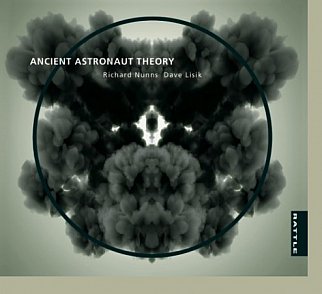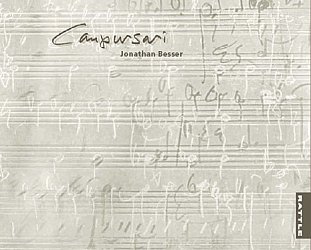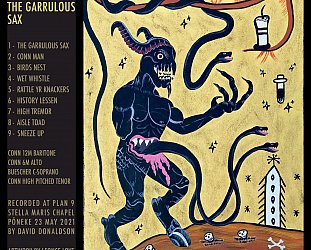Graham Reid | | 1 min read
Dave Lisik and Richard Nunns: Wondjina

Recently it was my great privilege to be asked to write some liner notes for this album on the estimable Rattle label. It is a very special album as you may hear.
So rather than relitigate those ideas why don't I simply reproduce the notes here and you can make what you will of it?
This is what I wrote . . .
We live in a world post-everything. Many paintings are post-Modern; emerging nations are post-colonial; contemporary art music is described as post-classical to differentiate it from concert halls filled with Bach and Beethoven, and latterly we've had post-rock, where drums and electric guitars are employed to make music which isn't rock.
Artists of all persuasions today draw from cultures and styles across the global village, and explore the present and past with equal confidence and impunity.
Nunns' often other-worldly sounds float in a spacious canvas and are treated electronically to create sonic landscapes or weightless astral planes of seemingly infinite scope and resonance.
The titles of the seven separate but integrated movements in this cinematic work suggest a narrative arc which might have come from Arthur C. Clarke by way of Andrei Tarkovsky: outside influences (The Watchers) charting the course of humankind's rise (Original Seeding), the mysterious Dreamtime (Wondjina) and the emergence of sentient beings (Oannes) into the world of Lux et Veritas (light and truth) . . .
This is where traditional-meets-electronics in evocative references to bird calls and landscapes, yet which also invoke suggestions of spirit voices. These extended pieces can be eerie but also earthy, the album title alludes to their emotional reach from mythic past to imagined future, the line between taonga pūoro and electronics is invisible.
This music could seem problematically genre-less, but receptive audiences exist to appreciate its rare beauty and allusiveness.
In the early 90s Philip Glass observed, “There’s an audience out there that isn’t just interested in jazz or pop or dance or theatre or modern music, they’re interested in all kinds of music. I hear a lot of talk about ‘crossover artists,’ but what I’m seeing is crossover audiences.”
Today's crossover audiences accept music which ignores arbitrary boundaries. They want music like that of Dave Lisik and Richard Nunns which reaches across culture, genre, space and time.
They understand and are entranced by music like Ancient Astronaut Theory which is post-everything. But, in its unique way, pre-so much more . . .
Dave Lisik is interviewed at Elsewhere here.
.
These Further Outwhere pages are dedicated to sounds beyond songs, ideas outside the obvious, possibiltiies far from pop. Start the challenge here.







post a comment